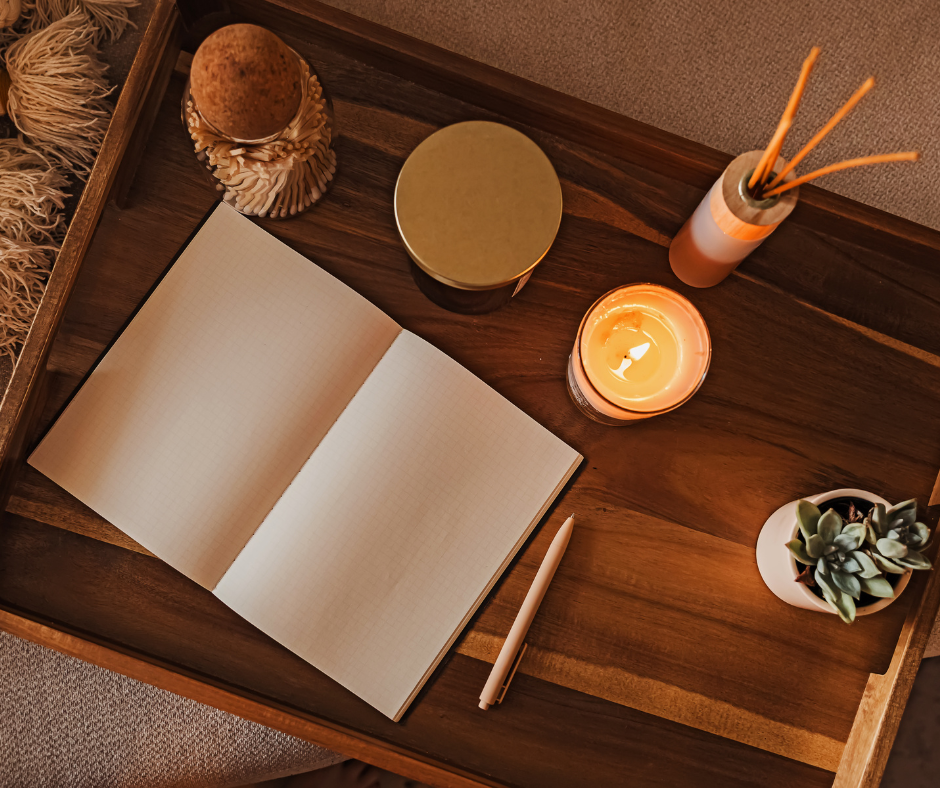How Rituals Anchor You in Uncertain Times
Why Rituals Matter Now More Than Ever
When life feels unpredictable, the nervous system reacts. Whether it’s global events, personal changes, or shifting routines, uncertainty can trigger stress, anxiety, and even feelings of helplessness.
But there’s a powerful antidote: rituals.
Rituals aren’t just habits or routines. They’re intentional actions that provide grounding, meaning, and a sense of control. Even something as simple as a morning cup of tea, a daily walk, or journaling for five minutes can create a sense of stability in the midst of chaos.
In uncertain times, rituals serve as an anchor, steadying you when external circumstances feel shaky.
Why Rituals Calm the Brain
Neuroscience shows that the brain craves predictability. When life feels uncertain, the survival brain (amygdala) stays on high alert, scanning for danger. Rituals counteract this by creating predictable, safe patterns that the nervous system can rely on.
Routine = safety. Repetition signals to your brain: I am safe, I know what comes next.
Focus = calm. Rituals redirect attention from overwhelming uncertainty to small, controllable actions.
Meaning = resilience. Rituals add symbolic weight to daily acts, reminding you that you have agency and purpose.
Rituals vs. Routines: What’s the Difference?
Routine is practical: brushing your teeth, checking email, doing laundry.
Ritual is intentional: adding presence and meaning to the act (lighting a candle while journaling, or pausing with gratitude before meals).
Both are valuable, but rituals carry a psychological depth that transforms them into tools for resilience.
The Science of Anchoring Through Ritual
Nervous System Regulation
Rituals activate the parasympathetic nervous system, which is your “rest and repair” mode. This lowers cortisol, slows the heart rate, and reduces anxiety.
Emotional Resilience
Research indicates that rituals can help athletes, leaders, and performers manage stress and enhance their focus. The sense of structure creates calm confidence even under pressure.
Community and Connection
Shared rituals foster belonging. Rituals like family dinners or holiday traditions bring a sense of connection, which is one of the strongest protective factors for mental health.
Practical Rituals for Uncertain Times
Morning Anchors
How you begin the day sets the tone. Simple rituals:
A few minutes of mindful breathing
Journaling one intention for the day
Preparing tea or coffee slowly and with awareness
These small acts shift you from reactive mode to grounded presence.
Movement Rituals
Physical rituals reinforce stability in the body and mind.
Stretching every morning before looking at your phone
Taking a daily walk at the same time each day
Using gentle yoga poses as a transition from work to evening
Evening Wind-Downs
Uncertainty often shows up at night as racing thoughts. Evening rituals signal the body to shift toward rest.
Dimming lights and turning off screens an hour before bed
Writing down one thing you’re letting go of from the day
Listening to calming hypnosis or meditation recordings
Symbolic Acts
Rituals don’t have to be elaborate. Even a symbolic gesture creates grounding.
Lighting a candle before starting work
Placing a hand on your heart while setting an intention
Gratitude rituals at meals
These symbolic actions send a powerful message to your subconscious: I am anchored, even in uncertainty.
A 5-Minute Anchoring Ritual
When uncertainty feels overwhelming, this quick ritual can ground your body and mind in just a few minutes:
Pause. Sit comfortably and close your eyes.
Breathe. Take 3 slow, deep breaths, releasing tension with each exhale.
Anchor. Place one hand on your heart or both feet firmly on the floor.
Affirm. Silently repeat: “I am steady. I am safe. I am present.”
Begin. Open your eyes and move into your day with more calm and focus.
Even a short, intentional practice like this signals safety to your nervous system and creates a sense of control in uncertain times.
Journaling Prompt: Rituals for Resilience
Take a few minutes to reflect:
Which small rituals already help me feel calm or steady?
What’s one ritual I can add this week to bring more presence into my day?
How can I bring more meaning into my daily routines?
Frequently Asked Questions
Q: Do rituals have to be spiritual?
No. Rituals can be entirely secular. The power comes from intention and repetition, not from religious or spiritual framing (though they can include that if meaningful to you).
Q: Isn’t this just habit formation?
Habits are automatic behaviors. Rituals are conscious, meaningful acts. The two overlap, but rituals carry emotional and symbolic weight that enhances resilience.
Q: How long does a ritual need to be?
Even 2–5 minutes can make a difference. It’s not about duration, but about consistency and intention.
Anchoring Yourself in Uncertainty
Uncertainty is part of life. But uncertainty doesn’t have to equal instability. Rituals are anchors. They are steady practices that remind you of what you can control, what grounds you, and where your strength lies.
With every ritual, you’re training your nervous system to return to calm and reminding your mind that stability can be created, even in chaos.
Try adding one anchoring ritual to your day this week. Notice how even a small, intentional act helps you feel more grounded, steady, and resilient, no matter what’s happening around you.


